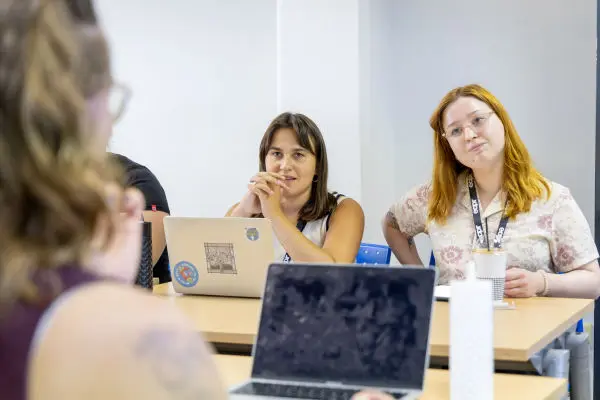
Amsterdam, Netherlands
Mindfulness and Compassion-based Interventions
When:
19 July - 06 August 2026
Credits:
6 EC
Read more
Social Sciences
When:
03 July - 07 July 2023
School:
Institution:
University of Innsbruck
City:
Country:
Language:
English
Credits:
5 EC
Fee:
450 EUR

The goal of scientific research is to accumulate knowledge. Researchers generate hypotheses and collect data in order to investigate whether or not empirical observations are consistent with these hypotheses. However, even though science aspires towards accuracy in this process, errors are inevitable. A fundamental characteristic that sets empirical science apart from other sources of knowledge is the ability to self-correct; any empirical observation is subject to validation and may be shown to be wrong. The reproducibility of empirical results constitutes a cornerstone of the scientific method. As a consequence of accumulative evidence emphasizing low levels of replicability, there is increasing concern that a considerable fraction—or even a majority—of published research claims may be simply false. The drivers of this „credibility crisis“ are manifold: the file drawer effect, insufficient statistical power, publication bias, confirmation bias, dodgy incentives in the publication process, p-hacking, etc.
The summer school aims at providing a critical view on the “rules of a game named science,” and provides an introduction to remedies to the manifold issues jeopardizing the credibility of scientific results: power calculations, confirmatory research (pre-registration), and open and transparent research practices.
Felix Holzmeister, PhD Ass.-Prof. of Behavioral and Experimental Economics and Finance University of Innsbruck, Department of Economics web: www.holzmeister.biz mail: felix.holzmeister@uibk.ac.at
PhD Students and PostDocs from all disciplines
Graduates will ...
... have a thorough understanding of common (mal)practices in scholarly research.
... have a thorough understanding of confirmatory and transparent research practices.
... have a thorough understanding of error rates, significance, power, etc.
... be able to undertake a priori power calculations and sensitivity analysis.
... be able to critically assess scientific projects and results.
Fee
450 EUR, The course fees do not include board and lodging. Participants have to take care of their insurances (health, accident, and liability insurance) themselves.
When:
03 July - 07 July 2023
School:
Institution:
University of Innsbruck
Language:
English
Credits:
5 EC

Amsterdam, Netherlands
When:
19 July - 06 August 2026
Credits:
6 EC
Read more

Barcelona, Spain
When:
13 July - 24 July 2026
Credits:
4 EC
Read more

Colchester, United Kingdom
When:
23 February - 27 February 2026
Credits:
4 EC
Read more